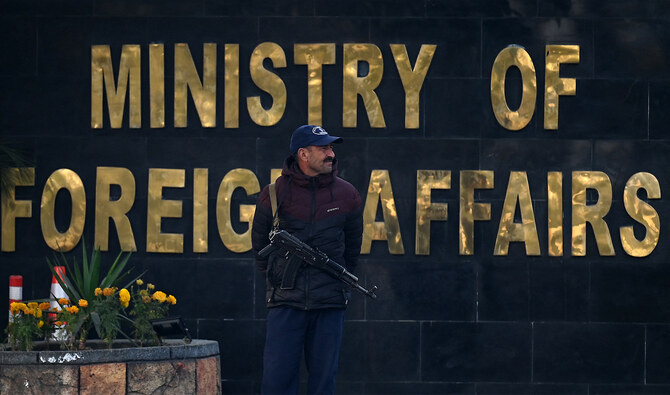ISLAMABAD: The foreign office on Thursday rejected as “media speculation” reports by a foreign news agency that Beijing is pushing Pakistan to allow its own security staff to provide protection to thousands of Chinese citizens working in the South Asian nation.
Reuters, citing five Pakistani security and government sources speaking on condition of anonymity, reported this week that a string of recent attacks on Chinese nationals had angered Beijing and pushed Pakistan to begin formal negotiations for a joint security management system.
Last month’s airport bombing in the southern port city that killed two Chinese engineers returning to work on a project after a holiday in Thailand was the latest attack on Beijing’s interests in Pakistan.
“Let’s not get carried away with speculation,” Foreign Office Spokesperson Mumtaz Zahra Baloch said at a weekly news briefing in Islamabad when questioned about the Reuters report.
“I would not like to respond to media speculations that are based on unreliable sources and motivated by an agenda to create confusion about the nature of Pakistan-China relationship.”
She added that Pakistan had raised a security force to protect Chinese nationals and projects, particularly those operating under the China-Pakistan Economic Corridor (CPEC) umbrella, and “this security apparatus continues to provide security to Chinese CPEC projects inside Pakistan.”
Longtime Pakistan ally China has thousands of nationals working on projects grouped under the CPEC, a $65-billion investment in President Xi Jinping’s Belt and Road Initiative, which seeks to expand China’s global reach by road, rail and sea.
The Reuters report said there was now a consensus on setting up a joint security management system, and that Pakistan was amenable to Chinese officials sitting in on security meetings and coordination but there was no agreement as yet on their participating in security arrangements on the ground.
One official said Pakistan had asked China for help in improving its intelligence and surveillance capabilities instead of direct involvement.
“We advise the media to ascertain the motivation of individuals who are feeding them this story,” Baloch said.
“Pakistan and China have a robust dialogue and cooperation on a range of issues including counterterrorism and security of Chinese nationals in Pakistan … We will continue to work with our Chinese brothers for the safety and security of Chinese nationals, projects and institutions in Pakistan.”
Baloch said as close allies, Pakistan and China had the resolve and capability to foil “any attempts to harm Pakistan-China relations, including by spreading stories about the nature of this relationship.”

















